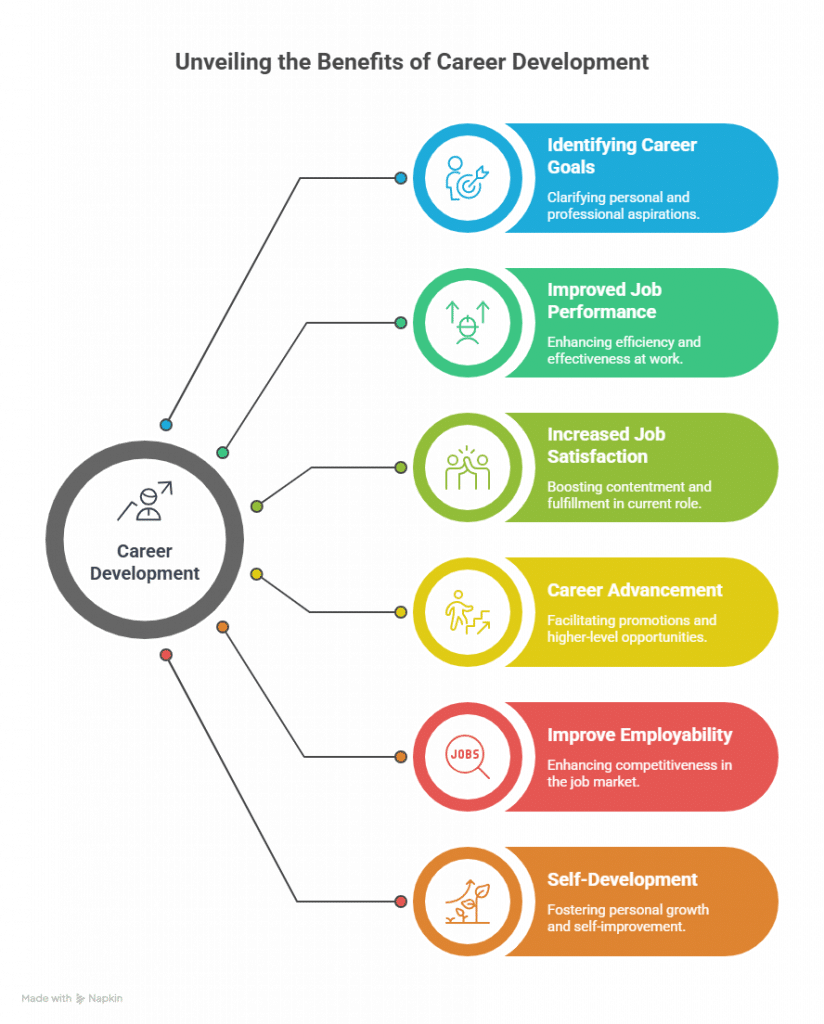In today’s rapidly changing job market, staying relevant by continuously upgrading your skills is essential for career growth. Whether you are a recent graduate, a young professional, or someone looking to switch careers, acquiring new skills can open doors to better job opportunities. Government free training courses provide an excellent chance to gain these skills without worrying about the financial burden, making skill development accessible to everyone.
These government free training courses are designed to address the evolving demands of various industries by offering courses in technical skills, vocational training, soft skills, and professional development. They are especially beneficial for rural youth and individuals from economically disadvantaged backgrounds, helping bridge the gap between education and employment. By participating in such courses, learners can acquire practical knowledge and government-recognized certifications that significantly enhance their employability.
Moreover, government free training courses empower individuals to take control of their career paths by improving job performance, increasing job satisfaction, and opening up avenues for promotion and higher salaries. Enrolling in these programs can be a strategic step toward personal growth and long-term professional success, setting the foundation for a fulfilling and prosperous career.

Why Government Free Training Courses Are Important for Career Development?
Embracing Continuous Learning
In today’s competitive world, continuous learning is essential for career growth. It helps individuals acquire new skills and improve existing ones, ensuring they remain relevant and adaptable in a rapidly evolving job market. Government Free Training Courses provide structured opportunities to keep up-to-date with the latest industry trends, technologies, and best practices.
Access to Quality Skill Development
Government Free Training Courses offer accessible and high-quality training programs, often designed in collaboration with industry experts. These courses ensure that learners receive relevant and practical knowledge that aligns with current market needs, making their skills more valuable to employers.
Enhancing Employability and Job Readiness
Participating in Government Free Training Courses significantly improves an individual’s employability. These courses provide recognized certifications and practical experience, which boost confidence and demonstrate competency to potential employers. This increases the chances of securing better job opportunities.
Facilitating Career Advancement
Government Free Training Courses enable individuals to gain additional qualifications and specialized skills, which are often prerequisites for promotions or higher-paying roles. By continuously upgrading their expertise, learners position themselves for upward mobility within their organizations or industries.
Supporting Inclusive Growth and Equal Opportunities
These courses play a critical role in bridging the skill gap for marginalized groups, including rural youth and economically disadvantaged individuals. By offering free access to skill development, government programs promote inclusive growth and help create equal opportunities for all sections of society.
How can government free training courses help you to advance your career?
Young people can acquire new skills by participating in government free training courses. This can increase their chances of career advancement, make them more competitive in the job need, and increase their earning potential.
Government free training courses can be valuable for people looking to improve their skills and advance their careers. In addition, these courses can provide access to high quality education and training opportunities for Free, making them an attractive option for Rural Youth who are all from below Poverty.
What Do Rural People Gain from Government Free Training Courses?
Identifying Your Career Goals
Government Free Training Courses provide rural individuals with the clarity and direction needed to identify their career goals. Through exposure to various fields and skill sets, participants gain a better understanding of their strengths and interests. This self-awareness empowers them to set clear, achievable objectives, enabling a focused approach toward building a successful career.
Improved Job Performance
These training programs equip learners with up-to-date knowledge and practical skills that directly enhance their job performance. By mastering new techniques and industry best practices, rural workers can execute their tasks more efficiently and confidently, contributing to higher productivity and better outcomes in their workplace.
Increased Job Satisfaction
Acquiring relevant skills not only improves performance but also fosters greater job satisfaction. When rural employees feel competent and valued, their motivation and enthusiasm for their work grow. This positive mindset leads to increased engagement, a stronger work ethic, and long-term commitment to their roles.
Career Advancement
Government Free Training Courses open doors to career progression by providing certifications and expertise that qualify individuals for promotions and higher-paying positions. For many rural workers, these opportunities are pivotal in overcoming socioeconomic barriers and achieving upward mobility within competitive industries.
Self-Development
Beyond technical skills, these courses promote holistic self-development. Participants cultivate essential soft skills such as communication, time management, and problem-solving, which are vital for personal growth and professional success. This continuous learning mindset helps rural individuals adapt to changing work environments and take charge of their future.
Improved Employability
Completing government-certified training enhances a rural learner’s resume with recognized qualifications, making them more competitive in the job market. This increased employability broadens their access to meaningful employment opportunities, helping them secure stable and rewarding careers.

Identifying your career goals
The first step is finding government free training courses to determine what skills and qualifications you need to achieve your goals. You can also consider your current job and see what skills or certifications are required to advance to the next level.
Improved job performance
Skill training can enhance an employee’s knowledge, skills, and abilities. This, in turn, can help them perform their job better, more efficiently, and more confidently.
Career Advancement
Learning new skills and knowledge can help People qualify for promotions, salary increases, or other career advancement opportunities in their future. In addition, demonstrating a broader range of skills and knowledge can make them more attractive to employers.
Self Development
Government free training courses are just the beginning of your career development journey. Keep learning and expanding your skill set through Government Certifcation Courses. Stay up-to-date with your field’s latest trends and technologies, and never stop investing in your professional growth.
Improve Employability
Our training courses are designed to provide you with the skills and knowledge needed to succeed in your chosen field. By completing our courses, you will be able to improve your Employability.
Types of skill development courses
Many skill development courses are available, depending on the specific skills you wish to develop. Here are some examples:
Technical Skills Courses
Technical skills courses are designed to equip learners with specialized knowledge and practical abilities essential for various industries. These courses focus on hands-on training, enabling participants to develop expertise in specific technical areas that are in high demand in today’s job market.
Computer Hardware & Networking
One of the most popular technical skill courses is in Computer Hardware and Networking. This program teaches participants how to assemble, configure, troubleshoot, and maintain computer hardware components and networks. Students gain practical experience in installing operating systems, managing network security, and solving connectivity issues, which prepares them for roles such as network technician, IT support specialist, and system administrator.
Software Development and Programming
Another critical area under technical courses is Software Development and Programming. These courses cover various programming languages, software design principles, and development tools, enabling learners to create applications, websites, and software solutions. This training is ideal for those aiming for careers in software engineering, web development, or app development.
Other Specialized Technical Courses
Beyond hardware and software, technical courses also include fields like Electrical Engineering, Automotive Repair, Industrial Automation, and Digital Marketing Technology. These programs provide industry-specific skills that open up opportunities in manufacturing, engineering, automotive sectors, and more.

Soft Skills Courses
Soft skills are essential non-technical abilities that significantly impact workplace effectiveness and career growth. These skills complement technical expertise by enhancing how individuals interact, communicate, and collaborate with others.
Importance of Communication Skills
Effective communication is at the heart of every successful workplace. Soft skills courses often focus on improving verbal, non-verbal, and written communication abilities. Strong communicators can clearly express ideas, listen actively, and build better relationships with colleagues, clients, and management.
Building Teamwork and Collaboration
Teamwork is crucial in nearly every professional setting. Soft skills training helps individuals develop the ability to work harmoniously within a team, resolve conflicts, and contribute to shared goals. Enhancing collaboration skills leads to improved productivity and a positive work environment.
Enhancing Problem-Solving Abilities
Problem-solving is a key competency that allows employees to navigate challenges and find effective solutions. Soft skills courses teach critical thinking, creativity, and decision-making strategies that empower workers to tackle workplace issues proactively and efficiently.
Developing Leadership and Management Skills
For those aspiring to move into leadership roles, soft skills training provides foundational competencies such as empathy, motivation, delegation, and conflict resolution. These skills prepare individuals to lead teams, manage projects, and drive organizational success.
Adaptability and Emotional Intelligence
Soft skills courses also emphasize adaptability and emotional intelligence—abilities that help employees manage change, handle stress, and understand their own emotions as well as those of others. These traits are increasingly valuable in dynamic and diverse workplaces.
Career Advancement through Soft Skills
Mastering soft skills can significantly boost career prospects. Employers highly value these competencies because they contribute to better teamwork, leadership, and customer relations. Government free training courses offering soft skills development thus play a vital role in preparing workers for higher responsibilities and promotions.
Vocational Training Courses
Vocational training courses are designed to equip learners with the specialized skills and knowledge necessary for specific trades or industries. These programs focus on developing practical expertise that aligns with the requirements of various job roles, preparing individuals to meet industry standards effectively.
Focused Skill Development for Specific Trades
Unlike general education, vocational training provides targeted learning aimed at particular occupations such as carpentry, plumbing, electrical work, automotive technology, tailoring, hospitality, and more. The curriculum is structured to cover essential techniques, tools, and best practices relevant to each trade, ensuring that learners gain comprehensive knowledge and are well-prepared to perform their job functions efficiently.
Bridging the Gap Between Education and Employment
Vocational courses are tailored to meet the evolving demands of the labor market by emphasizing skills that employers actively seek. These programs often incorporate real-world scenarios and case studies to help learners understand workplace expectations and problem-solving strategies. This alignment with industry needs improves job readiness and helps graduates integrate smoothly into professional environments.
Enhancing Career Opportunities and Earning Potential
Graduates of vocational training programs are often in high demand due to their specialized skill sets and practical understanding of their chosen fields. These courses open pathways to stable employment and can lead to well-paying jobs in sectors where skilled professionals are scarce. Many industries also offer opportunities for career growth and advancement based on the competencies gained through vocational education.
Accessibility and Flexibility
Vocational training is accessible to a wide range of learners, including rural youth and individuals seeking to improve their employability. Many government and private institutions provide flexible learning schedules, certifications, and placement support, enabling learners to balance training with other responsibilities and secure meaningful employment upon completion.
Focused Skill Development for Specific Trades
Unlike general education, vocational training provides targeted learning aimed at particular occupations such as carpentry, plumbing, electrical work, automotive technology, tailoring, hospitality, and more. The curriculum is structured to cover essential techniques, tools, and best practices relevant to each trade, ensuring that learners gain comprehensive knowledge and are well-prepared to perform their job functions efficiently.
Bridging the Gap Between Education and Employment
Vocational courses are tailored to meet the evolving demands of the labor market by emphasizing skills that employers actively seek. These programs often incorporate real-world scenarios and case studies to help learners understand workplace expectations and problem-solving strategies. This alignment with industry needs improves job readiness and helps graduates integrate smoothly into professional environments.
Enhancing Career Opportunities and Earning Potential
Graduates of vocational training programs are often in high demand due to their specialized skill sets and practical understanding of their chosen fields. These courses open pathways to stable employment and can lead to well-paying jobs in sectors where skilled professionals are scarce. Many industries also offer opportunities for career growth and advancement based on the competencies gained through vocational education.
Accessibility and Flexibility
Vocational training is accessible to a wide range of learners, including rural youth and individuals seeking to improve their employability. Many government and private institutions provide flexible learning schedules, certifications, and placement support, enabling learners to balance training with other responsibilities and secure meaningful employment upon completion.
Vocational training courses play a crucial role in developing a skilled workforce that drives economic growth. By focusing on industry-relevant skills and career readiness, these programs empower individuals to achieve professional success and contribute effectively to their communities.
Career development courses
It help Rural youth to enhance their job skills and prepare them for career advancement with Government Certification Courses. These courses may cover resume writing, job interview skills, and networking strategies.
Professional development courses:
Professional development courses help workers improve their skills and advance in their careers. These courses can cover various topics, from project management and leadership to financial planning and marketing. Professional development courses also help workers gain new certifications or credentials that can increase their job prospects.
FAQ
- Who can benefit from government free training courses offered by Elysian Skill Training?
Anyone looking to improve their skills and career prospects can benefit, especially rural youth, unemployed individuals, and those from economically weaker backgrounds. Elysian Skill Training focuses on empowering rural communities with accessible, government-certified skill development programs. - Are the government free training courses provided by Elysian Skill Training completely free of cost?
Yes, the courses offered by Elysian Skill Training are fully funded by government initiatives such as DDU-GKY, TAHDCO, TNSDC, NULM, and PMKVY, making them completely free for eligible participants. - What types of skill development courses does Elysian Skill Training offer through government programs?
Elysian Skill Training provides a wide range of courses including technical skills like computer hardware and networking, soft skills such as communication and teamwork, vocational training for specific trades, career development, and professional development programs. - How do Elysian Skill Training government free training courses improve my employability and career prospects?
By completing government free training courses from Elysian Skill Training, you gain industry-relevant skills and government-recognized certifications that enhance your resume and confidence, making you more competitive in the job market and increasing your chances of securing better employment opportunities. - Can Elysian Skill Training’s government free courses help me get promotions or salary increases in my job?
Yes, acquiring new skills and certifications through Elysian Skill Training programs can qualify you for promotions, salary increments, and other career advancement opportunities by demonstrating your enhanced capabilities to employers.
Conclusion
Elysian Skill Training is deeply committed to empowering rural communities across Tamil Nadu and throughout India by providing Government Free Training Courses that are government-certified and accessible to all. With nearly eight years of dedicated experience, the organization has established strong partnerships with key government schemes such as DDU-GKY, TAHDCO, TNSDC, NULM, and PMKVY. These collaborations enable Elysian to offer high-quality Government Free Training Courses tailored to meet the evolving demands of today’s job market.
The Government Free Training Courses focus on equipping individuals with relevant technical skills, soft skills, and professional knowledge that significantly enhance their employability. By participating in these government-backed Government Free Training Courses, learners gain credible certifications and practical experience, boosting their confidence and competitiveness in the workforce. This comprehensive approach not only opens doors to better job opportunities but also paves the way for career advancement and improved economic stability.
Ultimately, Elysian Skill Training serves as a vital catalyst for social and economic development in rural India through its unwavering commitment to education and skill development. By providing accessible Government Free Training Courses, Elysian nurtures talent, uplifts communities, and creates a lasting impact—helping individuals transform their lives and build successful, fulfilling careers.












